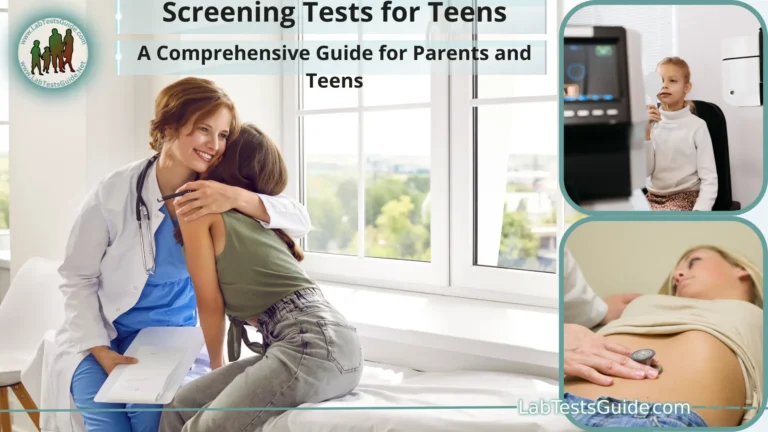
Screening tests are laboratory tests that help identify people at higher risk for a condition or disease before they develop symptoms or even realize that they may be at risk so that preventive measures can be taken. They are an important part of preventive medical care.
Without symptoms of disease, babies generally do not need many laboratory tests once they have been tested for newborns during the first week of life. The sections below provide information on the few conditions and diseases for which babies can be examined. They summarized the recommendations of several authorities on screening tests for babies, and there is consensus in many areas, but not all. Therefore, when discussing the screening test with your child’s health care provider and making decisions about the tests, it is important to consider the individual health situation and risk factors of your baby.
Not all infants may need screening tests for all the conditions listed here. Read the sections below for more information on each condition and to determine if the evaluation may be appropriate for your child. You should discuss screening options with your child’s health professional.
Iron Deficiency Anemia
Infants grow and develop quickly and need iron in their diet to develop normally. For the first 4 to 6 months, a baby can rely on the body’s own iron storage supply. After that, if a baby does not consume enough iron, there is a risk of developing iron deficiency.
Lead Poisoning
Lead is a metal that was once a common additive for household paint and leaded gasoline and was used in water pipes and as welding in canned foods.
The soil surrounding these houses may also be contaminated with lead. Children who live, play or spend time in these environments are at risk of being exposed to this metal and can carry lead to their bodies by inhaling or ingesting contaminated dust, water, paint chips or items contaminated with lead.
Exposure of a young child to lead can damage the brain and other organs and cause behavioral problems and developmental delays. Even at low levels, lead can cause irreversible damage without causing physical symptoms, and cognitive impairment may not be noticed until the child enters school.
Recommendations
An assessment of the risk of exposure to lead should be performed on visits by a healthy child at 6 months, 9 months, 12 months, 18 months, 24 months and at 3, 4, 5 and 6 years of age. A blood lead level test should be performed only if the risk assessment is positive.
Universal screening or blood lead level tests are no longer recommended, except for children in high prevalence areas with increased risk factors.
Pediatricians can also offer screening tests for:
- Children eligible for Medicaid at the age of 1 year and again at 2 years of age
- Children of all ages who are recent immigrants, refugees or adopted as soon as possible
- A child whose parent, guardian or provider requests a blood lead test due to suspected exposure
Individuals should consult with their health professional and / or the local health department about specific lead detection guidelines for risks in their area.
Tuberculosis
Tuberculosis (TB) is an infectious disease caused by the Mycobacterium tuberculosis bacteria. Tuberculosis is primarily directed to the lungs, but it can affect any area of the body. It can be transmitted through the air from person to person through droplets of respiratory secretions such as sputum or aerosols released by coughing, sneezing, laughing or breathing.
TB in children is a public health concern because it is a marker for recent transmission of the bacteria, and infants and young children are more likely than older children and adults to develop life-threatening forms of the disease.
Recommendations
Due to their weak immune system, babies under 2 years old are especially susceptible to this infection. Tests with a tuberculin skin test are recommended for children who are at risk for TB, which include:
- If a baby has been exposed to someone with active or suspected TB, such as a family member or other contact
- He is an immigrant from a country where TB is endemic or has traveled to those countries for more than a week.
Possible References Used



